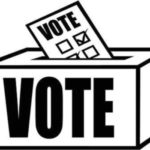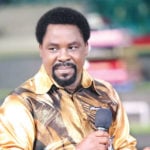The just-concluded federal and state elections in the country had many negative aspects. For one thing, after months of repeatedly assuring Nigerians that it was ready for the task, the Mahmood Yakubu-led Independent National Electoral Commission (INEC) ended up postponing the presidential election by one week, thus throwing a wrench in the plans of many private citizens. In the second place, in many voting centres across the country, the technological infrastructure that supported the election let voters down, leading to intolerably long lines in many polling stations, and dragging the election into the small hours of the following day in others.
Yet, these by no means inevitable problems were minuscule in comparison to the orgy of violence that surrounded the conduct of the election. Late last year, as campaigns by the two leading political parties, the All Progressives Congress (APC) and the Peoples Democratic Party (PDP) gained in intensity, calls issued from civil society and political advocacy groups demanding that politicians spread the gospel of peace among their supporters and constituents. Both the “Vote Not Fight” and “O to Ge” (Enough is Enough) campaigns were examples of such efforts to ensure a peaceful election. Viewed in its historical context, the pro-peace mobilisations were relatively effective. For instance, although there were several election-related killing, collectively, they were nothing of the order of what happened in the aftermath of the 2011 presidential election when a section of voters disappointed by the outcome of the ballot went on a rampage, killing an estimated 800 people, 700 in Kaduna State alone.
Forces that ensured victory for Dapo Abiodun’s APC in Ogun
Yet, it seems odd, if not downright cynical, to declare an election successful simply because fewer lives were reportedly lost than on previous occasions. For, despite the drop in the number of innocent citizens killed (between 50 and 75 depending on your sources and how you define ‘election-related’), the ugly truth is that this was as violent an election as any. The violence took various forms: police killing of innocent members of the public; killings of National Youth Service Corps (NYSC) members monitoring the election; violence involving members of rival political parties; and last but not least, violence unleashed by armed thugs and assorted outlaws sponsored by politicians.
The causes of this violence are as varied as the forms they usually assume. Ultimately, however, they boil down to what the late political scientist, Claude Ake, memorably described as the militarisation of politics, whereby politics becomes a do-or-die affair because the state is the one that presides over the allocation of resources: oil largesse in the Nigerian case. Thanks to this framework, apparently random acts of violence can be encapsulated within a single political economy. The overriding insight from Ake’s theorising is that, for as long as politics continues to be the only game in town, violence of some sort will continue to dog successive elections in the country. Private and public efforts to rein in election-related violence must be sensitive to this all-important insight.





